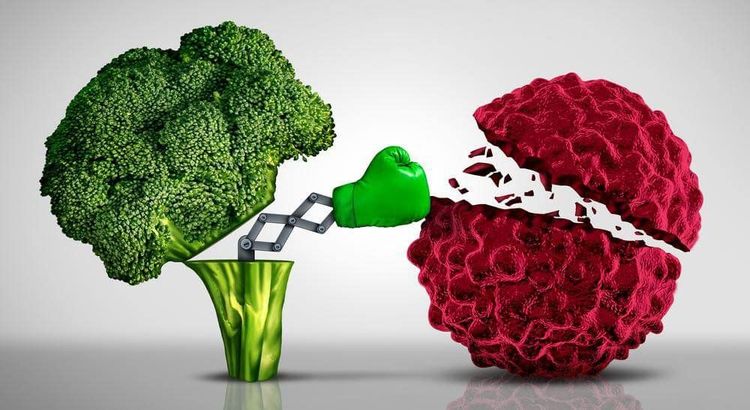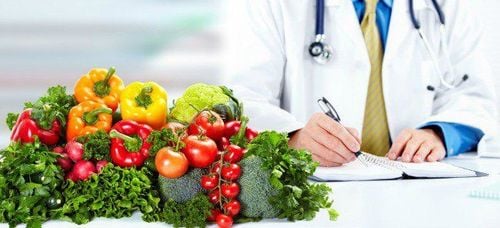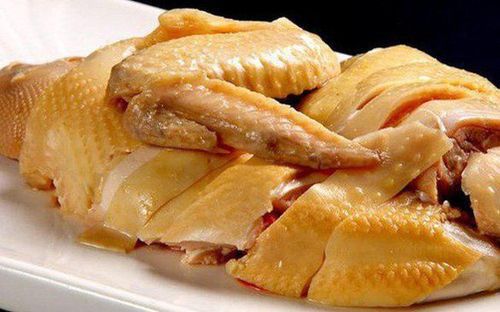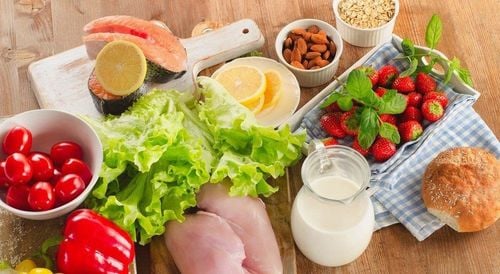This article was professionally consulted by Le Thien Quang, specialist level I, MD in Oncology at the Internal Medicine & Outpatient Department - Vinmec Da Nang International Hospital. Dr. Quang has over 15 years of experience in diagnosing and treating oncological diseases, including radiation therapy, chemotherapy, targeted therapy, and palliative care.
Diet plays a crucial role in the development, recurrence, and treatment of cancer. Many cancer patients choose to abstain from consuming animal meat, poultry, eggs, milk,…
1. How important is nutrition for cancer patients?
There are numerous causes of cancer, including an unbalanced diet and contaminated food. Every stage from food processing, farming, to transportation,… can pose cancer risks.
Since cancer involves mutated cells, while other healthy cells also need to grow normally, nutrition plays a critical role in ensuring patients have the strength to fight the disease and respond to specific cancer treatments such as surgery, radiation therapy, chemotherapy,… If a patient's nutritional status does not improve, doctors cannot proceed with the treatment regimen or may face failure as the patient lacks the strength to endure the side effects of the treatment. Therefore, patients need to understand that adequate nutrition is a crucial factor in enhancing the physical condition of those with cancer.

2. Should cancer patients consume eggs and milk?
Due to common traditional beliefs in our country, it is often thought that cancer patients should avoid consuming animal-derived proteins in order to prevent the rapid growth of cancer cells. However, this is a misconception.
Eggs, milk, chicken, beef, green vegetables, red beans, rice, wheat, potatoes… are rich sources of Protein. This is essential for cancer patients as it aids in wound healing, preventing infections during and after surgery, chemotherapy and radiation therapy. It also helps restore muscle mass lost due to the increased catabolic state of the body. Additionally, protein intake can improve appetite, which is crucial for cancer patients who often experience loss of appetite and poor dietary intake.
Thus, it is a significant mistake for some cancer patients to avoid eating eggs, drinking milk and consuming other protein-rich foods such as chicken, beef,… These foods are highly nutritious and easily absorbed, which helps improve the overall condition of patients, particularly in preventing malnutrition in cancer patients. It is important to choose the right kind of milk and consume it in appropriate quantities.
According to experts, it is recommended that cancer patients consume dairy products such as milk, cheese, low-fat cheese, yogurt, milk-based beverages, and drinkable yogurt. Dairy products in moderation include ice cream, milk with added flavors like chocolate, coffee, strawberry and other types of milk such as oat milk, rice milk, nuts-based milk,… It is crucial to avoid unpasteurized milk, cheeses containing plant-based ingredients and spices that are not heated, such as chili peppers, blue cheese.
Recommended egg-based foods include whole eggs - Poached eggs, scrambled eggs, thoroughly cooked omelets, and egg frittatas. Salted eggs and century eggs should be consumed in moderation. Raw or undercooked eggs are strictly prohibited for cancer patients.
For meat and poultry, experts recommend consuming chicken, duck, lean meat and beef.
3. What should cancer patients avoid eating?

Discussing an appropriate diet with a doctor for cancer patients
3.1. Avoiding specific foods
Certain groups of foods should be avoided by cancer patients; however, dietary restrictions vary depending on the individual, the type of cancer and the stage of the disease. The following are appropriate dietary guidelines to consider:
- Avoid processed foods like canned meats and fish, deli meats, sausages,
- Abstain from consuming beer, alcohol and bottled sugary beverages.
- Avoid seafood from polluted areas and limit intake of clams, mussels, and oysters due to high lead levels.
- Minimize consumption of fermented foods like pickled vegetables, salted eggplants, preserved meats and salted fish.
- Avoid coffee, particularly for patients with bladder cancer, pancreatic cancer…
- Avoid grilled foods, as carcinogenic compounds can be produced during the grilling process.
3.2. Dietary restrictions based on patient's physical condition
- Weak constitution: Choose foods that are light, easily digestible, high in nutrients. Avoid greasy, rich, and hard-to-digest foods such as fried items and fatty meats.
- Heat constitution: Opt for cooling foods and avoid spicy items such as ginger, garlic, chili, onions, alcohol, smoked foods, goat meat, chicken, dog meat and sparrow meat.
- Cold constitution: Select neutral foods; avoid raw and cold foods such as certain fruits, cold drinks, cold vegetables and seafood with cold properties.
- Excess constitution: Increase protein intake appropriately, avoid overconsumption of specific foods such as duck, chicken, fish; avoid tobacco, alcohol; and particularly refrain from indiscriminate eating and high-fat foods.
- Cancer patients with concurrent comorbidities: Dietary restrictions are essential. For instance, if cancer is accompanied by peptic ulcers, avoid acidic, spicy, hot foods, avoid overeating or prolonged fasting and abstain from hard-to-digest foods. For patients with concomitant hypertension, sodium intake must be restricted. Those with diabetes should avoid sugar. Individuals with kidney failure should abstain from high-sodium, high-protein foods, avoid animal fats,…
3.3. Dietary restrictions based on cancer type
The decision to eat or avoid certain foods must be based on the specific individual health condition. If a cancer patient develops a fever, acidic substances can accumulate in the body; consuming meat, which breaks down into acidic compounds, can increase the levels of these acids, potentially harming the functioning of the body’s organs, since an acidic environment is conducive to the proliferation of cancer cells, it's crucial to modify the diet to change their living conditions.
3.4. Dietary restrictions based on disease stage
- When dealing with cancer, dietary choices and restrictions should vary according to the different stages of the disease.
- During radiation and chemotherapy treatments, patients often experience leukopenia (a reduction in white blood cells), so it is advisable to eat mushrooms, eel, turtle and longan fruit.
- For patients experiencing dry mouth and tongue, it is beneficial to eat honey, sea cucumber and almonds. As overall bodily functions decline and digestive disorder becomes more pronounced, it is essential to avoid tobacco, alcohol, spicy and fatty foods (such as chili peppers and fatty meat);
- After radiation therapy, avoid foods that have metabolic heat and are harmful to body fluids, such as goat meat, dog meat,…
- Post-surgery patients need to be nourished with pure foods, known as detoxifying and neutral foods, avoid greasy, oily, strongly flavored foods, fishy seafood, as well as spicy and hot items.
Please dial HOTLINE for more information or register for an appointment HERE. Download MyVinmec app to make appointments faster and to manage your bookings easily.














